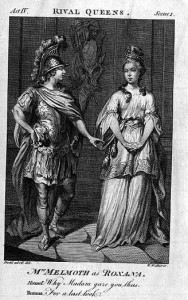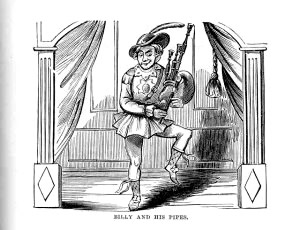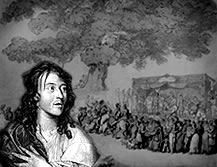Description
 Read Nathaniel Lee’s spectacular tragedy The Rival Queens, or the Death of Alexander the Great (1677), which for nearly two centuries was the medium through which many English and Scottish people knew about Alexander of Macedon. Lee’s Alexander eventually dies at Babylon, but only after five acts featuring the ghost of his father, drunken ravings, Indian dancers, and an extended cat-fight between his two wives, the bloodthirsty Roxana and the devoted Statira.
Read Nathaniel Lee’s spectacular tragedy The Rival Queens, or the Death of Alexander the Great (1677), which for nearly two centuries was the medium through which many English and Scottish people knew about Alexander of Macedon. Lee’s Alexander eventually dies at Babylon, but only after five acts featuring the ghost of his father, drunken ravings, Indian dancers, and an extended cat-fight between his two wives, the bloodthirsty Roxana and the devoted Statira.
A success in the Restoration theatre, endlessly revived in the 18th century, and still a favourite of the late Georgian nonpareil actor Edmund Kean (above), The Rival Queens crossed the class divide by being adopted into the popular repertoire of travelling fairground performance companies such as Richardson’s travelling theatre at Greenwich Fair.
A compact paraphrase (including north-eastern dialect forms) of The Rival Queens was also regularly performed by the troupe of Billy Purvis (1754-1853). Purvis was a working-class Scottish boy who had been apprentice to a joiner but preferred the life of a professional clown and bagpiper. He toured the circuit of Northumberland fairs and racetracks, frequented by Geordie pitmen, with his booth theatre.
 Yet Lee, the author of this culturally seminal ancient history play, although originally from a prosperous and well-connected upper middle-class family, ended his days a drunken dissolute after five years in Bedlam Hospital. He wrote to an acquaintance, ‘They called me mad, and I called them mad, and damn them, they outvoted me.’ He died in 1692 and was buried at the church of St. Clement Danes in the Strand, just across the road from where King’s College London was later to be opened.
Yet Lee, the author of this culturally seminal ancient history play, although originally from a prosperous and well-connected upper middle-class family, ended his days a drunken dissolute after five years in Bedlam Hospital. He wrote to an acquaintance, ‘They called me mad, and I called them mad, and damn them, they outvoted me.’ He died in 1692 and was buried at the church of St. Clement Danes in the Strand, just across the road from where King’s College London was later to be opened.




